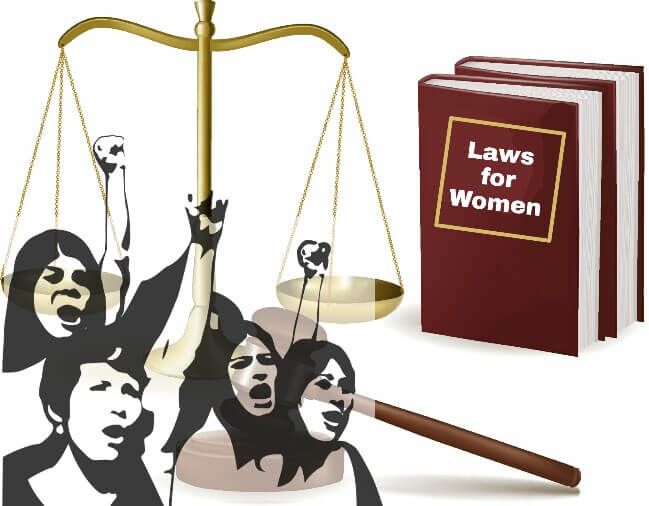Know Your Rights: 7 Laws That Protect Women In India
Aug 05, 2019 • 150 views
Rightly did Swami Vivekanand say, "Just as a bird cannot fly with one wing only, a nation can not march forward if the women are left behind !"
Crime against women occur every minute in India. Women are not safe, whether it is in theor houses, public places or at the workplace. Your safety is in your hands sounds like a cliched adage to repeat. Given the number of crimes that are committed against women, it is pertinent that women are aware about the laws that are in place to protect them.
1. The Prohibition of Child Marriage Act, 2006 :

According to the International Research Centre for Women, almost 47% of girls are married before the age of 18. Currently, India ranks 13 in the world when it comes to child marriages. The Prohibition of Child Marriage Act & was made effective in 2007. Parents trying to marry underage girls are subject to action under this law.
2. Special Marriage Act, 1954 :


The objectives of this Act is to provide - a special form of marriage in certain cases, provide for registration of certain marriages and, to provide for divorce. In a country like India & with the diverse religions & cast, when people from different faiths & caste choose to get married they do it under the Special Marriage Act. It is not applicable to the state of Jammu & Kashmir and also extends to intending spouses who are Indian nationals and living abroad.
3. Dowry Prohibition Act, 1961:

According to this Act, takimg or giving of dowry at the time of the marriage to the bride or the bridegroom & their family is to be penalised. Dowry system, taking and giving of dowry, is a norm in India. Dowry is often asked of the bride & her family by the groom & his family. When demands for dowry even after marriage are not met by the girl's families, many womens are tortured, beaten and even burnt. It is one of the major challenges that our society is grappling with.
4. Indian Divorce Act, 1969 :

The Indian Divorce Act allows the dissolution of marriage, mutual consent, nullity of marriage, judicial separation and restitution of conjugal rights. Family courts are established to file, hear, and dispose of such cases.
5. Maternity Benefit Act, 1861 :

This Act regulates the employmentof women & maternity benefits mandated by law. It states that a women employee who has worked in an organisation for a period of at least 80 days during the 12 months preceding the date of her expected delivery is entitled to receive maternity benefits, which includes maternity leave, nursing breaks, medical allowance etc.
6.National Commission For Women Act, 1990 :

The National Commission for Women Act (NCW) is a statutory body of the government of India, established in January 1992. Lalitha kumaramangalam was appointed its Chairperson in 2014. The NCW represents the rights of women in India & provides a voice for their issues & concerns. The NCW aims to improve the status of women & worked gor their economic empowerment.
7. Equal Remuneration Act, 1976 :

This Act prevents discrimination in terms of remuneration. It provides for payment of equal recompense to men and women workers. It is necessary to know these and other laws in place to protect the interests of women. Only if you are aware of your rights then you can fight against any injustice meted out to you at home, at the workplace or in society.
